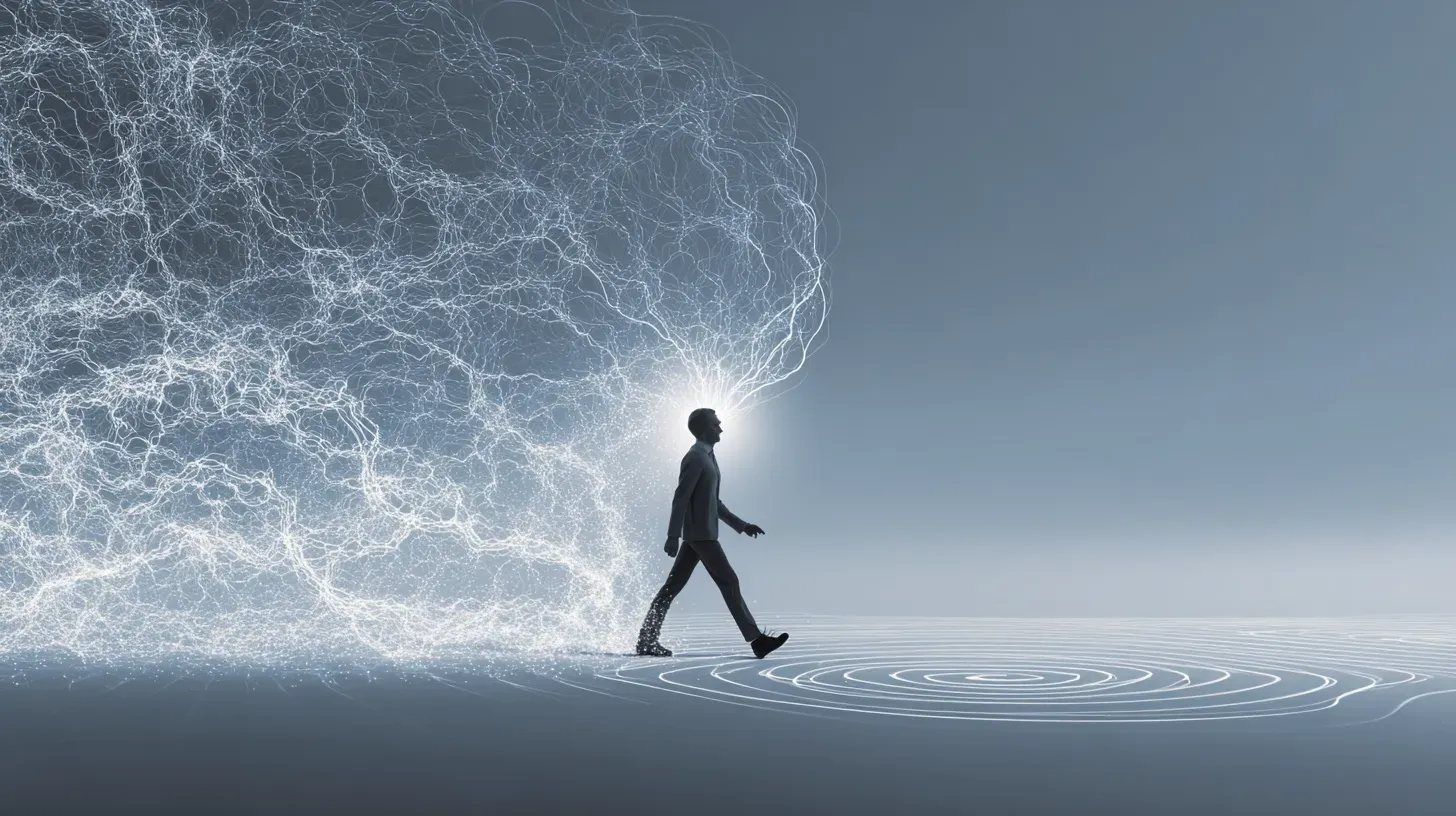Personalized TMS for Veterans with PTSD in Delray Beach
For many veterans, the return to civilian life brings a different kind of battle—one fought against the invisible wounds of post-traumatic stress disorder (PTSD). The hypervigilance, intrusive memories, and emotional numbness can feel like a constant state of high alert, making it difficult to connect with family, hold a job, or find a sense of peace. While traditional treatments like therapy and medication are vital, they don’t provide complete relief for everyone. For those seeking another path forward, a specialized, non-invasive treatment offers new hope: personalized Transcranial Magnetic Stimulation (TMS).
At Brainstorm Florida, we provide compassionate and advanced mental healthcare for our community’s heroes. Located in Delray Beach, our clinic offers a personalized approach to TMS therapy called PrTMS®, tailored specifically to the unique brain patterns of each individual. This article explains what PTSD looks like for veterans, how personalized TMS works, and why having local access to this innovative care in Palm Beach County is so important.
What PTSD Looks Like in Daily Life
PTSD is more than just "shell shock" or bad memories. It is a complex condition that rewires the brain’s threat-detection system, leaving it stuck in survival mode. The symptoms can disrupt every aspect of a person’s life and often manifest in ways that are misunderstood by others.
Common experiences for veterans with PTSD include:
- Re-experiencing Symptoms: Intrusive and distressing memories, flashbacks that feel real, and nightmares related to traumatic events.
- Avoidance: Actively avoiding people, places, conversations, or activities that trigger memories of the trauma. This can lead to social isolation and a feeling of detachment.
- Negative Changes in Mood and Thinking: Persistent negative thoughts about oneself or the world, feelings of guilt or blame, and a loss of interest in once-enjoyable activities. Many describe feeling emotionally numb.
- Hyperarousal and Reactivity: Being easily startled, feeling constantly on edge (hypervigilance), having angry outbursts, and struggling with sleep and concentration.
This constant state of mental and physical stress is exhausting. It strains relationships, impacts work performance, and robs individuals of the calm and stability they deserve.
Why Many Veterans Don’t Find Relief with Meds or Therapy Alone
Therapy and counseling and medication management are the first lines of defense against PTSD, and they help countless individuals. Cognitive Processing Therapy (CPT) and Prolonged Exposure (PE) therapy can help veterans process trauma, while medications like SSRIs can ease symptoms of anxiety and depression.
However, a significant number of veterans find that these treatments are not enough. Some may experience persistent symptoms despite their best efforts in therapy. Others may struggle with the side effects of medication, such as weight gain, fatigue, or emotional flattening. For those with treatment-resistant PTSD, the search for relief can feel frustrating and isolating.
This is not a personal failure—it is a reflection of the biological complexity of PTSD. Trauma can alter neural circuits, creating communication patterns in the brain that are difficult to reset with talk therapy or medication alone. This is where treatments that directly target brain function, like personalized TMS, can make a significant difference.
How Personalized TMS (PrTMS®) Works
Standard TMS therapy is an FDA-approved treatment that uses magnetic pulses to stimulate underactive areas of the brain associated with mood regulation. Personalized TMS, or PrTMS®, takes this a step further by creating a treatment plan based on your unique brain activity.
Here’s how the process works at our Delray Beach clinic:
- Brain Mapping (qEEG): The first step is a quantitative electroencephalogram (qEEG), or brain map. This non-invasive procedure involves wearing a cap with sensors that record your brain's electrical activity. The data reveals which areas of your brain are overactive or underactive and how different regions are communicating with each other. For veterans with PTSD, this often shows hyperactivity in the brain’s fear center (amygdala) and dysregulation in the prefrontal cortex, which controls executive functions like focus and emotional control.
- Individualized Protocol: Our clinical team analyzes your brain map to create a treatment protocol tailored specifically for you. Unlike standard TMS, which uses a one-size-fits-all approach, PrTMS® targets the precise locations and frequencies needed to help restore healthy brain communication patterns.
- Progressive Adjustments: Your brain is not static, and neither is your treatment. We perform periodic brain maps throughout your treatment course to track your progress and make fine-tuned adjustments to the protocol. This ensures the therapy remains optimized to your brain’s changing needs as it begins to heal.
By personalizing the treatment, PrTMS® offers a more targeted and potentially more effective approach for veterans whose symptoms have not responded to other forms of care.
What to Expect from Treatment
Deciding to pursue a new treatment can feel daunting, so we make the process as clear and supportive as possible.
- The Consultation: Your journey begins with a comprehensive consultation with our psychiatry team. We’ll discuss your history, symptoms, and previous treatments to determine if PrTMS® is right for you. This is a collaborative, non-judgmental space to ask questions and understand your options.
- The Sessions: TMS sessions are simple and non-invasive. You will sit comfortably in a chair while a small magnetic coil is positioned over your head. You will hear a clicking sound and feel a light tapping sensation during the treatment, which typically lasts about 30 minutes. You are awake and alert the entire time and can resume your normal daily activities, including driving, immediately after.
- The Timeline: A typical course of PrTMS® involves daily sessions, five days a week, for approximately six to eight weeks.
- Safety and Side Effects: TMS is a very safe procedure with minimal side effects. The most common is a mild headache or scalp discomfort at the treatment site, which usually resolves after the first few sessions. Unlike medications, it does not have systemic side effects.
Who is a Good Candidate for TMS?
TMS therapy may be a good option for veterans who:
- Have a confirmed diagnosis of PTSD.
- Have not found adequate relief from medication or talk therapy.
- Experience side effects from medications that are difficult to tolerate.
- Are looking for a non-invasive, drug-free treatment option.
Our psychiatry services include a thorough evaluation to ensure you are a suitable candidate. We are committed to finding the right path for every individual who walks through our doors.
Integrating TMS with Other Forms of Care
TMS is not a replacement for other essential mental health services. In fact, it often works best as part of a comprehensive care plan. Many veterans find that as TMS begins to alleviate core symptoms like hypervigilance and emotional numbness, they are better able to engage in therapy and counseling.
With a calmer nervous system, it becomes easier to process trauma, develop coping skills, and rebuild connections. Our team can work alongside your existing therapist and psychiatrist or provide integrated medication management and therapy in-house to ensure your care is seamless.
Results Veterans Often Report
While every individual’s experience is unique, many veterans who complete a course of personalized TMS report significant improvements in their quality of life. Common results include:
- Better, more restorative sleep.
- A reduction in hypervigilance and the feeling of being constantly "on guard."
- Improved mood regulation and fewer angry outbursts.
- Enhanced concentration and focus.
- A greater ability to engage with family, work, and hobbies.
- A renewed sense of hope and control over their lives.
Getting Started in Palm Beach County
You served our country with honor. Now, it’s our turn to serve you. You don’t have to continue fighting this battle alone, and you don’t have to travel far to get cutting-edge care. Brainstorm Florida is proud to offer personalized TMS therapy right here in Delray Beach, providing a convenient, compassionate, and confidential environment for veterans across Palm Beach County.
If you are a veteran struggling with PTSD and are ready to explore a new approach to healing, we are here to help.
Contact Brainstorm Florida today to schedule a confidential consultation and learn if personalized TMS is the right next step for you.











